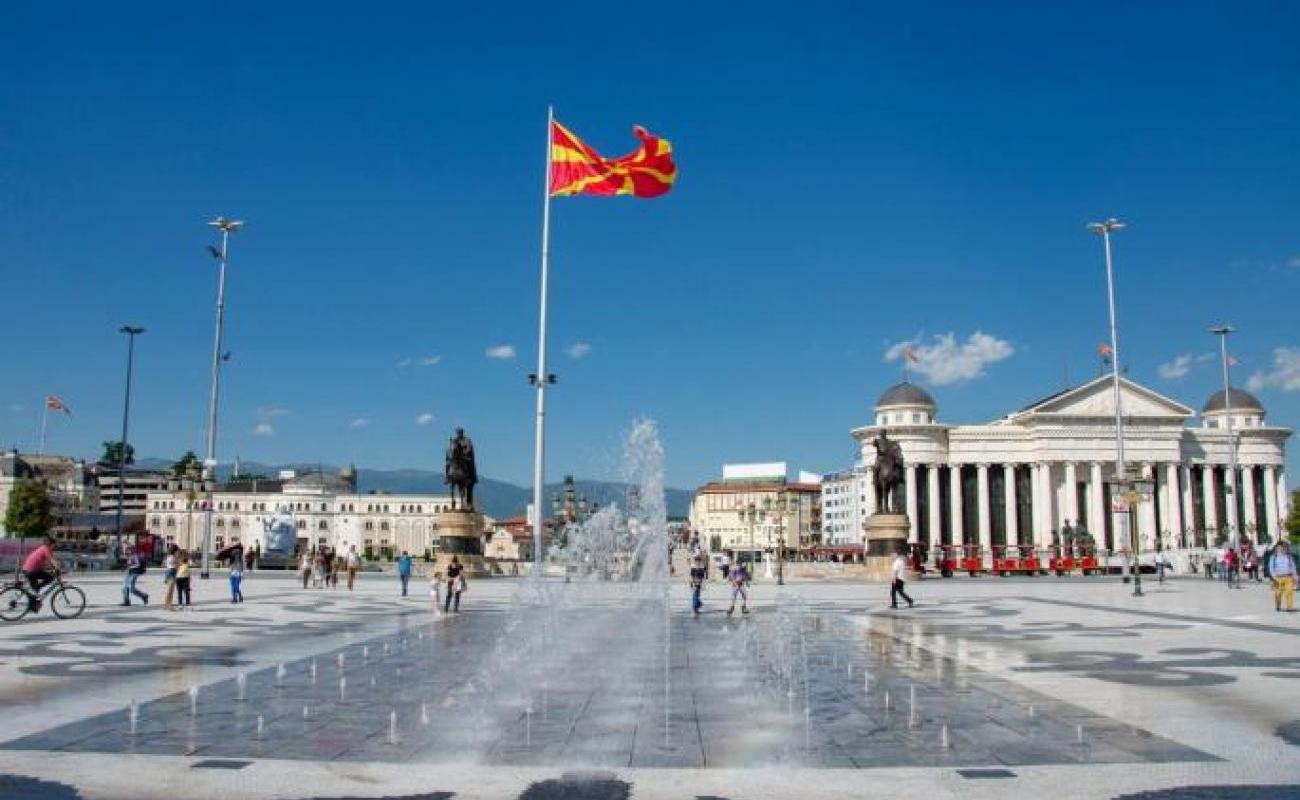Russian "diplomatic activities" in Northern Macedonia

Northern Macedonia became a full member of NATO in 2020, and the road to that achievement was long and arduous. Neighboring Greece has long blocked Northern Macedonia's efforts to become a NATO member by arguing over Macedonia's name. After Macedonia changed its name to Northern Macedonia through constitutional changes, NATO's path was unblocked. A particularly challenging period was during 2017, when Skopje was shaken by mass demonstrations, and masked (!?) Demonstrators stormed the Assembly during the session on constitutional changes. Moscow blamed the United States and the EU for that, while counter-accusations came from the West that Russia was manipulating the Macedonian right-wingers from VMRO-DPMNE in order to prevent reforms that unblock Macedonia's NATO path. It is known that the officials of the embassies of Russia and Serbia in Northern Macedonia played an active role in destroying the constitutional and legal order, and many viewed the events at the time as Russian-American shootings on the territory of Northern Macedonia for their own interests.
At the end of 2019, the US Senate voted convincingly with 91 votes in favor and two against for the ratification of Northern Macedonia's accession to NATO, which is an indicator of the special importance of this issue for the United States. Secondly, at the same time, Russian President Vladimir Putin warned at a meeting of Russian military leaders in Sochi that "NATO expansion is a threat to Russia."
Russia's foreign ministry issued a statement explaining the threat: "Macedonia's withdrawal by force into NATO only confirms that the" open door "policy has become an instrument for gaining control over geopolitical territory."
On the same day that the Macedonian flag was hoisted in front of the Alliance's headquarters in Brussels, Russian Foreign Ministry spokeswoman Maria Zakharov said that "Russia does not understand what threat NATO will protect Macedonia from."
By the way, a common Russian argument against NATO expansion is "the non-existence of a threat from Moscow after the dissolution of the Soviet Union in 1991," as Vladimir Putin told Reuters.
NATO, on the other hand, advocates a completely different argument for enlargement policy and relations between members.
"Northern Macedonia's membership in NATO is a matter for Northern Macedonia and the Alliance. No third party may interfere. Each nation has the right to decide its own future - and to freely choose its own political and security arrangement with other nations and organizations. This is a fundamental principle of European security that we have all signed in the Helsinki Final Act, including Russia.
Russia has failed in its efforts to prevent Macedonia's NATO membership, but has continued its subversive activities in northern Macedonia, similar to what it is doing in neighboring Bulgaria. Accredited staff of the Russian embassy conducts espionage activities in accordance with the tasks they received from Moscow, which are directed against NATO on the territory of its members. Carrying out actions to protect state interests, Northern Macedonia was twice forced to expel
Russian embassy officials in Skopje, although it had previously expelled a Russian diplomat in 2018 in solidarity with Britain, which accused the Kremlin of trying to kill a former agent on its territory.
On that occasion, the Minister of Foreign Affairs of Northern Macedonia, Bujar Osmani, stated, "Every time the Ministry of Foreign Affairs receives confirmed and documented information on the conduct of accredited foreign diplomats that is contrary to the principles of the Vienna Convention, it takes measures to protect its national security and the security of its allies." ” According to unofficial information, he is the deputy military attaché of Russia in Northern Macedonia, and in accordance with good diplomatic manners, neither side has mentioned the names of expelled diplomats in the past.
Much more important than the name is the well-established Russian practice of intelligence in other countries, especially in those that are members of NATO or intend to become so. What is especially interesting for Russia are the NATO plans that they are trying to achieve through the member countries. As we can see from the media, Bulgaria and Northern Macedonia are under special attack, although there have been similar incidents in other countries such as Italy and Germany. Analytical circles sometimes state that Russia's interest in the Balkans is exaggerated, one of the analysts in this area is Leo Beshiri, director of the Institute for European Affairs, and he believes that this is not the case:
"Russia's influence in the Balkans is by no means exaggerated. Moreover, it is much larger than our research shows, because we cannot follow those informal influences. The influence that is exerted is exercised primarily through economic means, but also through the friendly and family ties of those who serve as a "Russian agency" not only in Serbia, but throughout the region. These are people whose goal is political destabilization, and the distance of the countries of the former SFRY from the EU and NATO integration. The romantic view of the "Russian brotherhood" and their contribution to the spread of Russian influence should not be left out. All in all, although Russia is weaker than other world powers when it comes to economic power, it still has a great desire to maintain the status quo in the region, but also to protect its economic, political and security interests by having its influence on political, cultural and religious elites, ”says Beshiri.
Russia's influence in the Western Balkans is clearly manifested, and from the point of view of countries that are in NATO or want to become that, that influence is by no means well-intentioned. Northern Macedonia is just one example of open Russian interference and the use of illicit methods of action on the territory of sovereign countries, all under the guise of diplomatic work and immunity.
